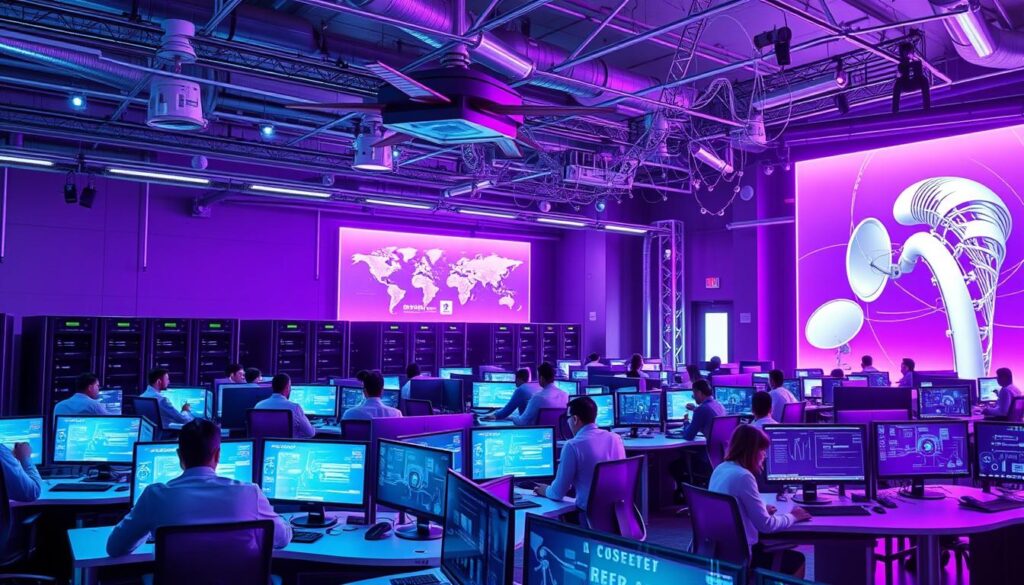Did you know that global IT spending is projected to reach a staggering $5.61 trillion by 2025? This growth is driven by rapid advancements in technology, particularly in areas like AI, cybersecurity, and cloud services. As businesses navigate this evolving landscape, the role of managed service providers (MSPs) is becoming more critical than ever.
MSPs are no longer just support systems; they are strategic partners helping organizations manage complex infrastructures, enhance security, and adopt automation. With the increasing demand for integrated solutions, MSPs are stepping up to deliver tailored services that meet diverse client needs. This shift is reshaping the industry, making 2025 a pivotal year for the channel.
As we look ahead, the focus is on innovation and efficiency. Leaders from top companies like Insight, WWT, and Cognizant emphasize the importance of digital transformation and cybersecurity. These trends highlight the need for MSPs to adapt and evolve, ensuring they remain indispensable in a competitive market.
Key Takeaways
- Global IT spending is expected to hit $5.61 trillion by 2025.
- MSPs are evolving into strategic technology partners.
- AI, cybersecurity, and cloud services are driving industry growth.
- Automation and efficiency are key focus areas for MSPs.
- Integrated solutions are essential to meet diverse client demands.
Understanding the Evolving Landscape of MSPs

The managed service provider (MSP) industry is undergoing a significant transformation. Driven by rapid technological advancements, MSPs are no longer just support systems. They are becoming strategic partners for businesses navigating complex digital landscapes.
Digital Transformation and Emerging Technologies
Digital transformation is reshaping traditional MSP operations. Emerging technologies like AI, cloud computing, and automation are at the forefront. These tools enable MSPs to deliver more efficient and tailored solutions to their clients.
For example, AI-driven analytics help businesses predict and address issues before they escalate. Cloud services offer scalable resources, ensuring flexibility for growing organizations. This integration of technology is redefining the value MSPs bring to the table.
Cybersecurity Challenges and Zero Trust Shifts
As cyber threats grow more sophisticated, cybersecurity has become a top priority. MSPs are increasingly adopting Zero Trust models to enhance security. This approach ensures continuous verification of users and devices, minimizing risks.
Ransomware attacks and data breaches are on the rise. MSPs must stay ahead by implementing advanced security measures. This includes comprehensive training and robust identity and access management (IAM) solutions.
Global Market Dynamics and Industry Growth
The global MSP market is expanding rapidly, with projected revenues reaching $595 billion by 2025. Regions like APAC are leading this growth, driven by increased outsourcing budgets and technological adoption.
Cross-border collaborations and heightened competition are shaping the industry. MSPs are evolving to meet diverse client needs, offering integrated services that span multiple sectors. This global shift underscores the importance of innovation and adaptability.
Key Trends in msps channel future for 2025

Emerging technologies are reshaping the way MSPs operate and deliver value. From AI-driven automation to multi-cloud strategies, these advancements are transforming the industry. Businesses are increasingly relying on MSPs to manage complex infrastructures and enhance security. This shift is creating new opportunities for innovation and growth.
AI-Driven Automation and Predictive Analytics
AI is revolutionizing the MSP ecosystem. Predictive analytics enables proactive IT management, helping businesses address issues before they escalate. For example, AI-powered tools streamline ticket processing, vulnerability assessments, and threat detection. This not only improves efficiency but also enhances the overall customer experience.
According to industry research, AI-driven automation can save technicians significant time. By automating routine tasks, MSPs can focus on strategic initiatives. This approach ensures that businesses remain competitive in a rapidly evolving digital landscape.
Multi-Cloud Adoption and Integrated Security Platforms
Multi-cloud strategies are becoming essential for optimizing cost, performance, and scalability. MSPs are leveraging these platforms to deliver tailored solutions that meet diverse client needs. Integrated security platforms, such as Zero Trust and XDR, provide holistic protection against cyber threats.
These platforms ensure business continuity by offering comprehensive endpoint management. As the demand for cybersecurity solutions grows, MSPs are well-positioned to address these challenges. This trend underscores the importance of innovation in meeting evolving customer requirements.
For more insights on the future of the Managed Service Provider, explore our detailed analysis.
Innovative Strategies and Market Opportunities for MSPs

The managed services market is evolving rapidly, offering new opportunities for innovation. As businesses face increasing complexity, MSPs are stepping up with tailored strategies to meet diverse needs. These approaches not only enhance efficiency but also position MSPs as indispensable partners in the digital age.
Verticalization and Specialized Service Offerings
One of the most impactful trends is verticalization. MSPs are tailoring their services to meet industry-specific compliance and operational demands. For example, healthcare providers require robust data security, while financial institutions prioritize regulatory compliance.
Specialized offerings help MSPs differentiate themselves in a competitive market. By focusing on niche areas, they can deliver higher value to clients. This strategy not only boosts customer satisfaction but also strengthens long-term partnerships.
Embracing Everything-as-a-Service and Remote Workforce Solutions
The shift towards Everything-as-a-Service (XaaS) is transforming service delivery. This model allows businesses to access scalable solutions on demand, reducing upfront costs. It also enhances flexibility, enabling organizations to adapt quickly to changing needs.
Supporting remote workforces is another critical area. Reliable network and cybersecurity strategies are essential for ensuring productivity and security. MSPs are leveraging advanced tools to provide seamless remote access and protect sensitive data.
“The XaaS model is a game-changer, offering unparalleled flexibility and scalability for businesses,” says an industry expert.
By partnering with leading vendors, MSPs can expand their capabilities and ensure sustainable growth. These collaborations enable them to deliver cutting-edge solutions that meet evolving market demands.
Conclusion
The managed service provider landscape is evolving rapidly, driven by digital transformation and advanced technologies. With AI, cloud platforms, and cybersecurity at the forefront, MSPs are becoming essential partners for businesses navigating complex infrastructures. Industry forecasts highlight a growing demand for tailored solutions, emphasizing the need for innovation and adaptability.
Key trends like AI-driven automation and multi-cloud strategies are reshaping how MSPs deliver value. By focusing on specialized services and integrated security, they address emerging market opportunities effectively. As organizations increasingly rely on managed services, MSPs must continue to evolve, ensuring they meet diverse client needs.
For deeper insights into optimizing MSP strategies, explore our analysis on MSP sales trends. The path ahead is clear: embracing innovation and strategic partnerships will drive sustained success in this dynamic industry.

